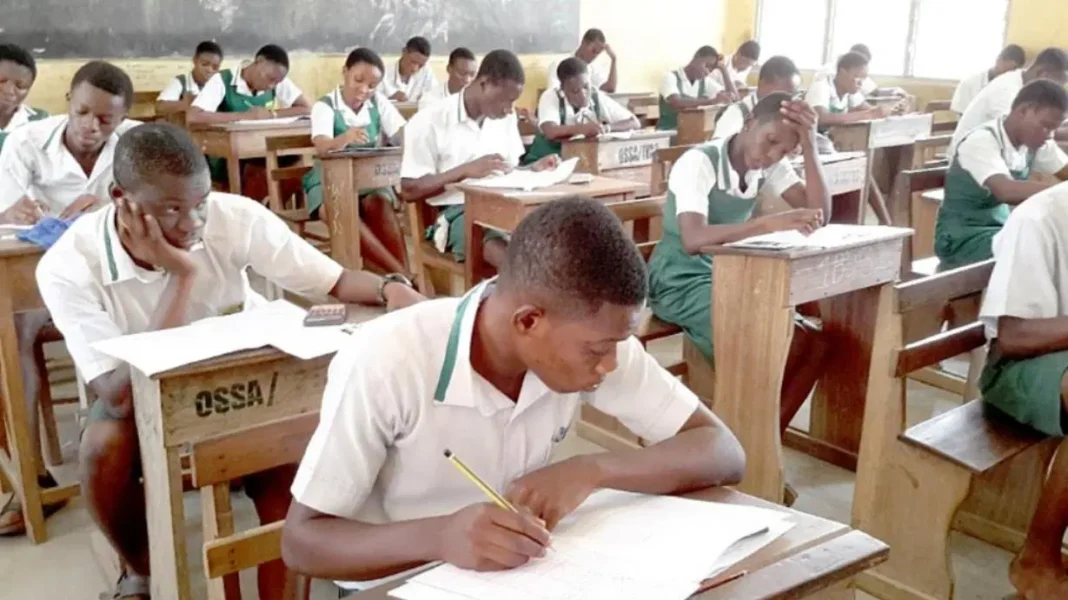Stakeholders Clash with WAEC, NECO Over Shift to Computer-Based Testing for SSCE…The plan by the West African Examinations Council (WAEC) and the National Examinations Council (NECO) to introduce Computer-Based Testing (CBT) for the Senior School Certificate Examinations (SSCE) by 2026 has generated heated debate and strong opposition from several key stakeholders, especially groups representing students and educators in northern Nigeria.
While the examination bodies argue that moving to CBT is a necessary modernization aimed at reducing malpractice and aligning with global standards, many voices from affected communities express concerns over the readiness and fairness of such a transition.
The Arewa Youth Consultative Forum (AYCF), a prominent advocacy group for youths in the northern region, has emerged as one of the most vocal critics of the proposed CBT system.
According to the AYCF, the widespread lack of computer literacy among students in many northern states could result in mass failures and further disadvantage students from rural and underserved areas.
Yerima Shettima, the national president of the forum, cited studies conducted across states like Zamfara, Jigawa, Taraba, Adamawa, Nasarawa, and Plateau, which revealed that students in many public schools have limited access to computers and insufficient training in digital skills.
For these students, transitioning abruptly to CBT, without adequate preparation, could unfairly compromise their chances of success in these crucial exams.
The AYCF insists that the authorities consider making the CBT option voluntary rather than compulsory.
They advocate for a dual system where students can choose between traditional pen-and-paper exams and computer-based assessments depending on their level of computer proficiency and access to technology.
The forum argues that such a flexible approach would prevent marginalizing students who lack the resources and infrastructure to adapt to CBT immediately.
In response to these concerns, WAEC has sought to clarify its position on the rollout of CBT.
Moyosola Adesina, the acting head of WAEC’s public affairs unit, explained that the initial implementation of CBT will target private candidates only and will not affect the majority of school candidates in the early stages.
The council emphasized that the move is part of a broader plan to improve the integrity of examinations by reducing incidents of cheating and leakage, aligning Nigeria’s examination system with international best practices.
WAEC maintains that CBT offers numerous benefits, including faster processing of results, enhanced exam security, and the potential to streamline logistics involved in examination administration.
Despite these reassurances, the AYCF and other critics remain unconvinced.
They argue that the phased introduction focusing on private candidates does little to address the core issue of unequal access to technology in public schools, where the majority of students sit for the SSCE.
The forum is urging the government and examination bodies to prioritize investments in infrastructure, such as providing computers and reliable internet access in schools, and to organize comprehensive training programs to prepare students and teachers for the CBT system before full implementation.
READ MORE: Wike’s Endorsement of Tinubu for 2027 Sparks Intense Backlash from Opposition
The Nigerian federal government has set an ambitious three-year target to migrate all NECO and WAEC exams to CBT.
Education Minister Dr. Tunji Alausa has reiterated the government’s commitment to modernizing the examination process, highlighting the need to tackle endemic examination malpractices such as leakage, impersonation, and fraud.
To this end, a special committee has been established to address these challenges, aiming to ensure that the transition to CBT supports not only technological advancement but also transparency and credibility in Nigeria’s education system.
However, the debate over the CBT rollout underscores the complex challenges of implementing educational reforms in a country as diverse as Nigeria, where access to technology varies widely between urban and rural areas, and among different regions.
While the adoption of CBT is generally seen as a forward step in enhancing the quality and reliability of national exams, the concerns raised by stakeholders highlight the importance of a well-planned, inclusive approach that leaves no group behind.
As the discussions continue, it is evident that the success of CBT for WAEC and NECO exams will hinge on adequate preparation, infrastructure development, and capacity building.
Without these critical elements, the risk remains that a significant portion of Nigerian students—especially those from disadvantaged backgrounds—may face unfair hurdles in their academic journeys.
The coming years will be crucial as policymakers, education authorities, and stakeholders work to find a balance that ensures technology advances educational outcomes rather than deepening existing inequalities.




